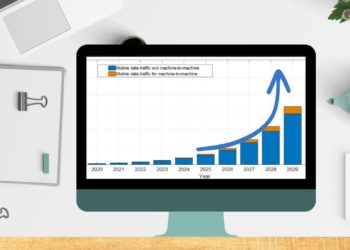Care Management Analytics software is widely adopted by large Accountable Care Organizations (ACOs) to support their operations. These ASOs coordinate networks of hundreds of thousands of covered lives, dozens of hospitals, and hundreds of patient care facilities. They cover Medicare, the ACA exchange (aka Health Insurance Marketplace online platform), Medicaid, commercial insurance, and direct-to-employer lines of business. They report substantial decreases in annual Medicare patient expenditures, hospital readmission rates, and lengths of stay (LOS), along with enhanced care coordination for super-utilizers, who typically account for a disproportionate use of healthcare resources.
Approaches that enhance care coordination enable organizations to gauge shared savings, evaluate financial outcomes, determine true ROI, save substantial amounts, and validate forecasted annual savings of tens of millions over numerous years.
However, organizations lack certain analytics tools to assess the effectiveness of care management programs, particularly in addressing variations among patient populations, the specific requirements of unique patient groups, and pinpointing where care management resources can deliver the most significant impact.
Leveraging data analytics alongside key organizational strategies helps address these issues and accelerates the achievement of business objectives.
Challenges with Care Management for ACOs
Accountable Care Organizations evaluate the overall efficiency of their care management programs and face various difficulties during this evaluation process. Healthcare systems need to tackle the following challenges:
Coordination Issues
- Executives may face difficulties in determining the most effective allocation of care management resources
- Various outcomes of interest (population health, economic, operational, patient-reported, clinical)
- Disparities in patient populations needing care
- Diverseness of program offerings.
Resource Distribution and Program Design
- Absence of a care management strategy that would allow a more effective response to the requirements of unique patient groups
- Shortage of initiatives to enhance treatment results for unique patient populations
- Particular groups of patients may present to emergency departments (EDs) needlessly and receive a disparate number of resources for their care when they could receive better care outside the ED
- Inefficiencies in managing super-utilizers, such as homeless individuals facing health disparities (who visit emergency departments at much higher rates than those with housing).
Communicating Significance
- The care management team may find it difficult to articulate the full worth of its program offerings
Methodological Issues
- Propensity score matching necessitates selecting the right variables, as it entails give-and-take between generalizability, precision, balance, sample size, and external validity
- Issues creating control groups.
Data Challenges
- Absence of the needed data.
Features of Analytics Tools for Care Management
To support informed decision-making, healthcare system leadership utilizes high-quality data, analytical tools like Care Management Analytics Software, and approaches such as propensity score matching to assess care management program effectiveness and evaluate performance. The tools assist in managing the following tasks:
Data Preparation for Analysis
- Setting improvement goals for specific contracts, geographical regions, and patient populations, informing the development of service structures required for advancement
- Prepping high-quality, complete data that incorporates patient characteristic data, and measures of utilization and quality, to assist in assessing the influence of care management programs
- Choosing the appropriate variables to obtain results that distinctly highlight areas of achievement and shortcomings
- Identifying suitable control groups for comparative analysis through propensity score matching
- Conducting propensity score matching analysis to contrast and evaluate the outcomes and costs between patients receiving interventions that are directly part of care management and comparable patients in a control group without such interventions.
Insight Creation and Visualization
- Visualizing the care management analysis outcomes to uncover new insights effortlessly
- Identifying patients with multiple factors influencing their health and well-being and enrolling them in a care management program
- Recognizing and examining variations in results and costs across numerous payers for hundreds of thousands of patients.
Program Results Evaluation
- Evaluating how efficient patient outreach efforts and various care management initiatives are
- Identifying programs with the highest potential for success and those that may require adjustments or ongoing refinement
- Assessing the financial results of care management initiatives.
Organizational Measures to Deploy Care Management Analytics Software
It is advised that healthcare organizations follow the subsequent actions:
Forming a Multidisciplinary Team and Leveraging Analytics for High-Need Care Programs
- Healthcare systems should engage industry experts, data scientists, data engineers, data analysts, and financial specialists, all with extensive knowledge of care management programs and patient requirements and traits, to collaborate on the project and select the appropriate variables
- Healthcare systems can leverage insights from analytics tools to develop advanced care management programs for super-utilizers.
Data-Driven Initial and Post-Discharge Interaction
- Community health workers (CHWs) should utilize data analytics to pinpoint patients with high needs and schedule the initial meeting when they are in the ED or admitted to the hospital
- CHWs should ground their intensive navigation approaches in data-driven insights to assist high utilizers post-hospital discharge, with an emphasis on harm reduction.
Connecting Patients to Relevant Services
- CHWs should utilize analytics tools to prioritize super-utilizers and customize their in-person meetings (once or more per week) to focus on patient goals and needs
- CHWs can leverage analytics to connect patients with the most suitable mental health, medical, or community resources, minimizing needless repeated services
- CHWs should depend on analytics to identify and arrange the most critical medical, mental health, and benefit appointments for super-utilizers in specific programs.
Benefits of Using Care Management Analytics Software
By aligning efforts and utilizing data analytics tools, organizations can evaluate the financial effects of their care programs, assess the real return on investment, and calculate shared savings. The outcomes presented consist of:
Cost Savings and Expense Decrease
- Dozens of millions in estimated annual savings over a few years
- Millions of dollars in savings due to reduced resource consumption
- Substantial decrease in yearly expenses for Medicare patients under the management of the proactive care team
- A decrease of hundreds of thousands of dollars in payer costs over about one year for patients enrolled in innovative care management initiatives.
Usage and Service Enhancement
- Substantial decrease in usage for commercial members receiving hospital transition support
- Notable relative reduction in readmission rate
- Meaningful relative decrease in the total number of days that each ill person spent admitted and their length of stay in the hospital during one admission
- A significant drop in ambulance transports, ensuring these critical resources remain available for medical emergencies
- Considerable reduction in ED visits, freeing up department capacity to better serve patients with emergency care needs.
Enhanced Patient Results
- A significant enhancement in the quality of life for certain patient populations who took part in specific program offerings, such as a great increase in the number of instances when a homeless individual received housing after their participation in this specific program and subsequent discharge.
How a Healthcare Software Development Company Can Assist
An outsourcing company like Belitsoft that specializes in healthcare software development assists top healthcare data analytics companies in building robust data operating systems.
For integrated data platforms developed to collect, store, process, and analyze large volumes of data from various sources (Electronic Medical Records, clinic management systems, laboratory systems, financial systems, etc.), the healthcare software development companies:
- Automate data processing workflows (cleansing, standardization, and normalization)
- Configure scalable data warehouses
- Set up and implement analytical tools for creating dashboards, reports, and data visualizations
- Ensure a high level of data security and compliance with healthcare regulations such as HIPAA
- Integrate machine learning and AI into analytics.
They also assist in developing customized analytical applications such as Care Management Analytics Software for:
- Quick and effective input of payer data, patient data (including social determinants of health – SDOH), and patient flow data for ongoing program assessment and data-driven decisions
- Examining data that outlines clinical conditions (diagnoses) data, as well as patient demographics (gender, age), disease cohort, and utilization data
- Assessing patients according to usage criteria and checking them for SDOH that impact health outcomes (financial strain, housing status, food unstableness, employment status, exposure to violence, and incarceration)
- Visualizing different care management scenarios and performance assessment
- Assessing the anticipated cost savings for each successful patient engagement based on the outreach cause and type
- Showing how cost reductions for patients with a certain condition and insurance plan depend on transition support from healthcare personnel for a certain period after these patients’ release.
If you are looking for expertise in data analytics, data infrastructure, data platforms, HL7 interfaces, workflow engineering, and development within cloud (AWS, Azure, Google Cloud), hybrid, or on-premises environments, a healthcare software development company like Belitsoft also can serve these needs.











































































